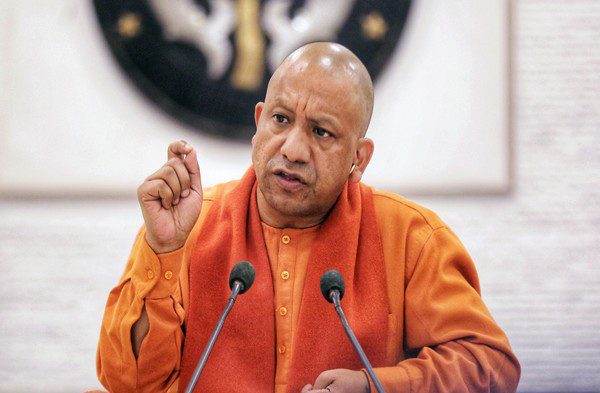In view of the increasing cases of cybercrime in Uttar Pradesh, the Yogi Adityanath government has made a significant decision to establish cybercrime police stations across 57 districts of the state. The proposal was approved in the cabinet meeting held at Lok Bhavan under the chairmanship of Chief Minister Yogi Adityanath on Tuesday, said a statement from government of UP.
With this decision, cybercrime stations will be operational in every district of the state. At present, cybercrime police stations are established in all 18 divisions of the state. Till now, an IG-level officer used to look after these police stations, but after the establishment of cyber crime stations in all the districts, the Superintendent of Police will take charge, added the statement.
A total of 20 proposals were presented during the cabinet meeting, out of which 19 were approved by the Cabinet. The setting up of the cyber police stations is estimated to cost Rs 1.25 billion.
Finance and Parliamentary Affairs Minister Suresh Khanna provided details of the Cabinet’s decisions at the media center of Lok Bhavan. He emphasized that due to the escalating incidents of cybercrime in the state, there is a pressing need for cyber police stations in all 75 districts. While cyber police stations are already operational in the 18 divisional headquarters, a significant decision has been made to establish such stations in the remaining 57 districts, he added.
“The total expenditure on this is estimated at more than Rs 1 billion, 27 crore, 24 lakh, 51 thousand. The government is committed to expeditiously working on this, ensuring the prompt establishment of these police stations. This endeavor aims not only to enhance vigilance against cybercrime, but also to enable the effective enforcement of measures against such criminal activities”, Khanna said.
Giving information about the current situation of cybercrime in the state, Khanna pointed out that UP is at the top in terms of convictions in cybercrime. “Our conviction rate is much better than the national average. The national conviction rate in cybercrime cases is 46.5 percent, whereas our conviction rate is 87.8 percent.
So far, there have been 838 convictions in the state, whereas Madhya Pradesh, which is at second place, has had only 59 convictions. A total of 7122 criminal arrests have been made in the state, while 2582 criminal arrests have been made in Maharashtra. In 2022, Uttar Pradesh has registered 10,117 cybercrime cases”, he informed further.
The districts where the new cyber stations will be set up are: Unnao, Rae Bareli, Sitapur, Hardoi, Lakhimpur Kheri, Kanpur Dehat, Etawah, Fatehgarh, Kannauj, Auraiya, Meerut, Ghaziabad, Bulandshahr, Baghpat, Hapur, Sultanpur, Barabanki, Amethi, Ambedkar Nagar, Etah, Hathras, Kasganj, Mathura, Firozabad, Mainpuri, Jaunpur, Ghazipur, Chandauli, Maharajganj, Deoria, Kushinagar, Balrampur, Shravasti, Bahraich, Badaun, Shahjahanpur, Pilibhit, Rampur, Bijnor, Amroha, Sambhal, Pratapgarh, Fatehpur, Kaushambi, Chitrakoot, Hamirpur, Mahoba, Sonbhadra, Bhadohi, Mau, Ballia, Siddharthnagar, Sant Kabirnagar, Lalitpur, Jalaun, Muzaffarnagar and Shamli.
Suresh Khanna further announced that decks have also been cleared for the opening of an Advanced Pediatric Center at the PGI with the approval of the proposal by the Cabinet. It is worth mentioning here that Chief Minister Yogi Adityanath had announced the setting up of an Advanced Pediatric Center in PGI recently.
Under the proposal, a 575-bed Advanced Pediatric Center will be established in PGI in two phases consisting of over 20 departments and 6 units. The estimated cost of the project is Rs 199 crore 10 lakh 52 thousand. The first phase will include setting up of 12 departments, 4 units and 308 beds whereas the second will see inclusion of an additional 265 beds, nine departments and two units.
The Chief Minister has issued a directive for the completion of construction within 18 months. The establishment of the Advanced Pediatric Center aims to provide a secure treatment environment for children.
Providing relief to advocates, the government has also approved the proposal to increase the Advocate Welfare Fund by Rs 100 crore. The Finance Minister said that on the death of an advocate, his family gets help from this fund. Earlier, the amount given to an advocate’s family was Rs 1.5 lakh, which has been increased to Rs 5 lakh. At present, this fund is of Rs 200 crore; however, the government’s target is to increase it to Rs 500 crore. (ANI)
For more details visit us: https://lokmarg.com/

